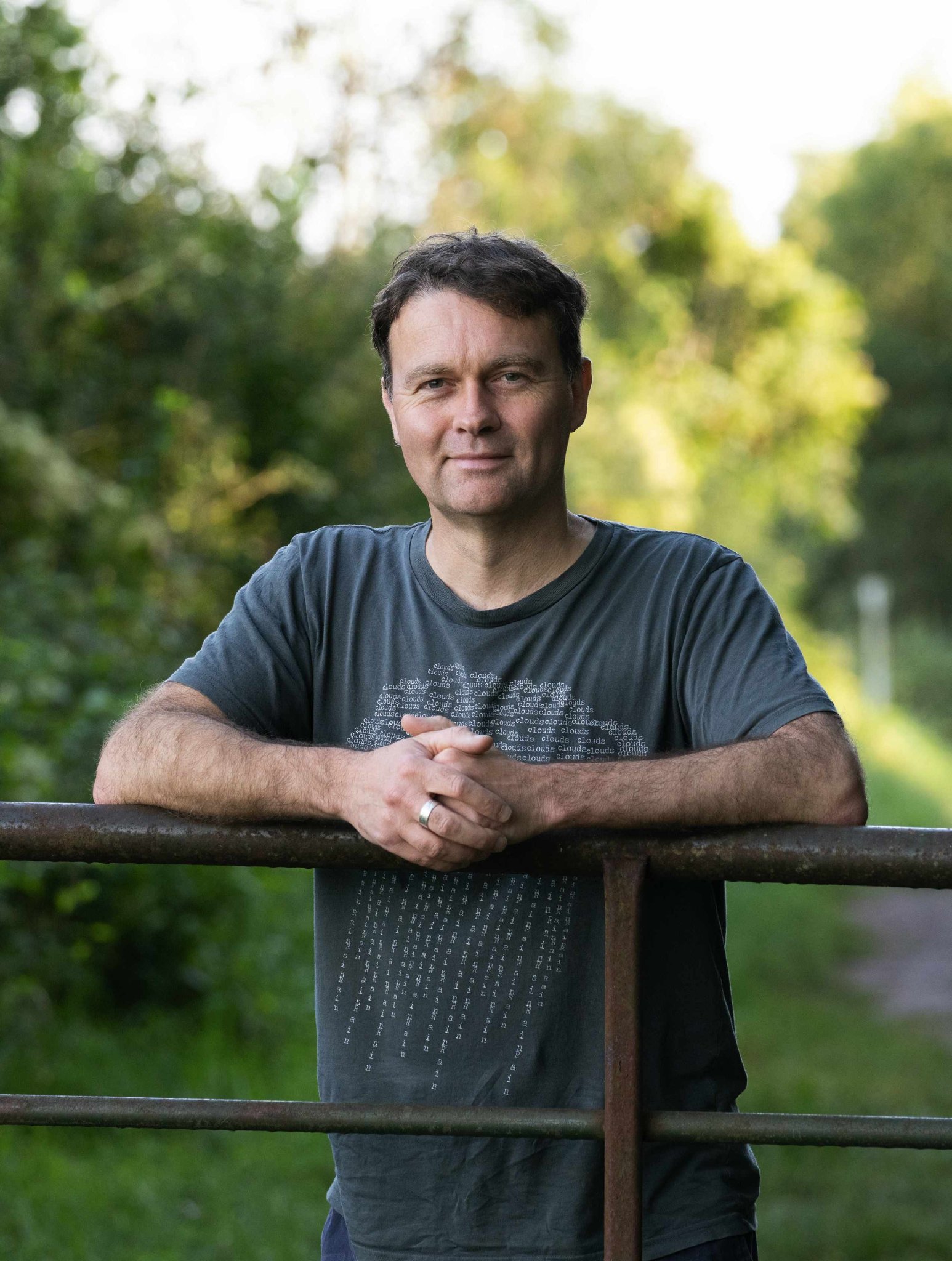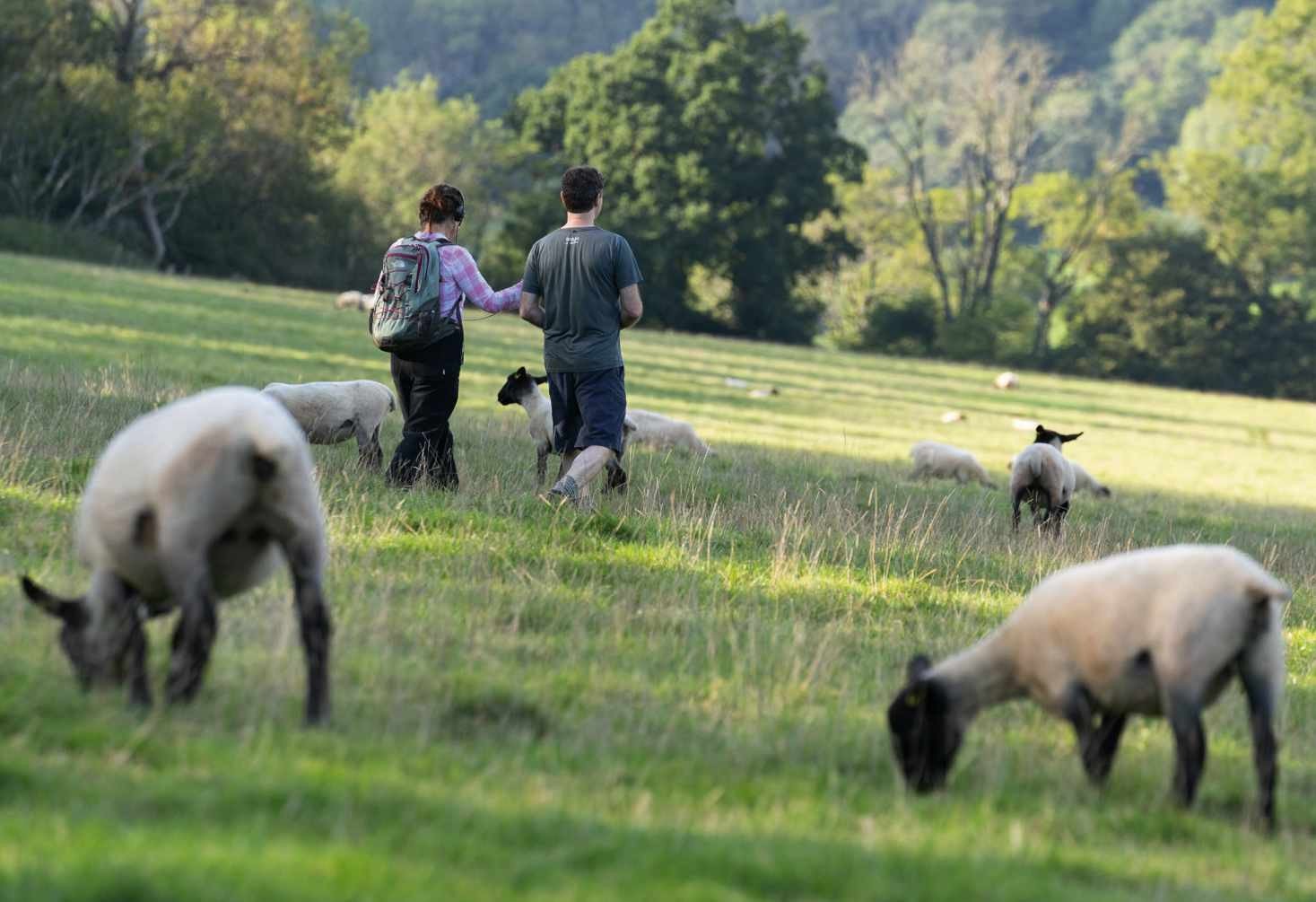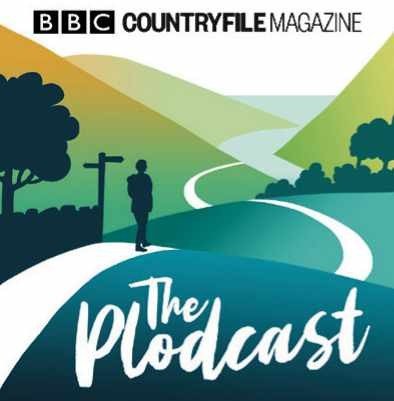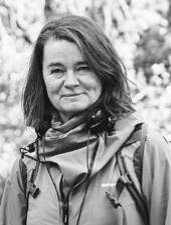Natural leader
He loves the smell of a river, is a self-taught weatherman with his head in the clouds and Nirvana’s would-be bass player. Meet Countryfile’s new boss Mark Beech

Unassuming and gently spoken, Mark seems to embrace the countryside wherever he goes, whether he’s filming on location in Oregon or swimming in the Thames. Being series editor for Countryfile seems to come naturally to him, another life experience he is quietly attaining. We met in Somerset’s Mendip Hills on a warm sunny evening in early autumn…
Are you enjoying working in Bristol?
“Yes, it’s an area I really love. I first came here when I was about eight. My grandparents are from Bristol and I remember them taking me on a day out to the Mendip caves and being struck by the countryside. It felt exotic. It was different because I’m from the Sussex coast, originally.”
What was the countryside like where you grew up?
“We lived on the edge of where the residential areas ran out and the farmer’s fields began. So I’d spend a lot of my time in those fields. In fact, the first unofficial job I ever had was collecting unbroken clay pigeons for a farmer called Frank. He said ‘I’ll give you one pence for every clay pigeon you find that isn’t broken’. So I spent a lot of time scratching my shins in fields, collecting clay pigeons for a couple of quid.
“Growing up on the coast, the weather is so dramatic. It’s very different to being inland. It gave me a fascination for weather, and for most of my school years what I really wanted to be when I grew up was a weatherman.”
What was your first job?
“When I was 16, I was lucky enough to do my work experience at the Met Office. It was quite something to go in there and meet the people and the machines working out the weather. But it destroyed my romantic idea of being a meteorologist. I’d thought, you wake up in the morning, check your Stevenson screen, tap your barometer, check which way the wind’s going, and then announce to the world what the weather’s going to be for the day.
“But even back then, in the late 1980s, this room was just full of computers doing all the work. And as someone who thought I could get into this as a career, it put me off instantly. But, I never lost my interest in meteorology and of manual forecasting – if we call it that – knowing what the clouds mean and so on. I love all that.”
So, you have a natural love for the countryside – but how did you end up as the series editor for Countryfile?
“It really started about eight years ago. I was living in London when I got a phone call from an old colleague asking if I could head over to the USA and direct a series about homesteaders. I thought it sounded fascinating – the chance to get out to the States. I went to Oregon, Carolina, North Carolina – all sorts of places. I loved it.
“When I started working in the UK again I ended up making an observational documentary series about farming. Our job was to document the daily life and work of three farmers over half a year, and that was absolutely fantastic to work on. These farmers were incredible, the way they added to their already heavy workload and gave up their time to talk to our film crews. I learned so much about farming.
“These farmers were incredible, the way they gave up their time to talk to our film crews”
“I’m still not an expert by a long way, but it gave me a fascination for farming and rural life and, as these things happen, by then I’d been firmly pigeon-holed. That’s when Countryfile appeared on the horizon.”

Now you’re the series editor, are you allowed to make some changes?
“I am, but it’s difficult when you take over a show that is already being run well. I wanted to be seen to be making a difference to the show but, at the same time, it didn’t need lots changing.
“One thing I have introduced is the young farmers’ sections. We’ve got four young farmers spread across the UK and they film themselves and send us their material. We don’t over polish it because we want the viewers to see a sort of unedited view. And what they send in is footage of them doing a task, which could just be the most mundane job to them. But in a way, to us, and I hope to our viewers, it’s privileged access.”
What do you get up to when you’re not running Countryfile?
“At weekends I usually get out into the countryside with my daughters. But, on a standard weeknight, you’ll find me on a squash court. I play for my local team. I’m pretty average, but I enjoy it. And I play bass guitar. It’s a lovely instrument to play, but the one downside is that when you get to a certain age, and you don’t have time to be in a band, it’s not the most exciting instrument to play by yourself. I do pick it up and noodle on it, which I really enjoy and it means I can sort of zone out, just tootle away on the bass and not think of anything. And I always keep the phone by my side in case the famous rock band phone up and say, ‘Can you come? Yeah, you ready?’ And I can say, ‘Yes. I’ve kept the rust at bay. Where should I head?’”
Which band would you want the call from?
Well, sadly, they’re no longer a band, really. Nirvana.
Do you have a favourite bit of water in the UK?
“I love swimming. A couple of years ago, on holiday with my family, we hired a boat and chugged along the upper reaches of the Thames. The boat was tiny. But it was during a particularly hot spell which meant you could just jump off the boat and have a swim in the River Thames, which sounds disgusting, but when you’re up in Oxfordshire, it’s absolutely lovely. I saw kingfishers and it’s quite the setting to see a kingfisher when you’re having a swim in the river. The water temperature was fantastic. There’s something about swimming in fresh water – it’s that smell, the smell of the river. I don’t know what it is. I’m sure a scientist could tell me what I’m smelling – I absolutely love it.
“There’s something about swimming in fresh water – it’s the smell of the river. I absolutely love it”
“When you’re swimming, your eyes are so close to the water level. From above, you might look and think, there’s the odd water boatman there or something. But, when a dragonfly goes by, when your eyes are within a centimetre above the water level, you suddenly see that there’s tons of stuff on this water. Then you start to feel, oh, I’m swimming with these creatures.”
Whether we live in the city or a village, what can we each do to support the countryside?
“We can all do tiny things and massive things. Tiny things such as: can this car drive be a walk instead? And then massive things such as: who and what am I voting for?
“The great thing is, everyone has the power to make a change. It might just be how you open up the countryside to your kids as you bring them up. Is the countryside somewhere that gets in the way between place A and B? Or is it somewhere you go to slow down and enjoy? And that can really change the outlook of someone, and their relationship with the countryside from a young age, I think.”
Listen on the Plodcast

Hear the full interview with Mark Beech on the BBC Countryfile Magazine podcast from early November, available on Acast, iTunes, Apple Podcasts and most other major providers. countryfile.com/podcast

Annabel Ross is a writer, BBC broadcaster and regular contributor to the BBC Countryfile Magazine Plodcast.